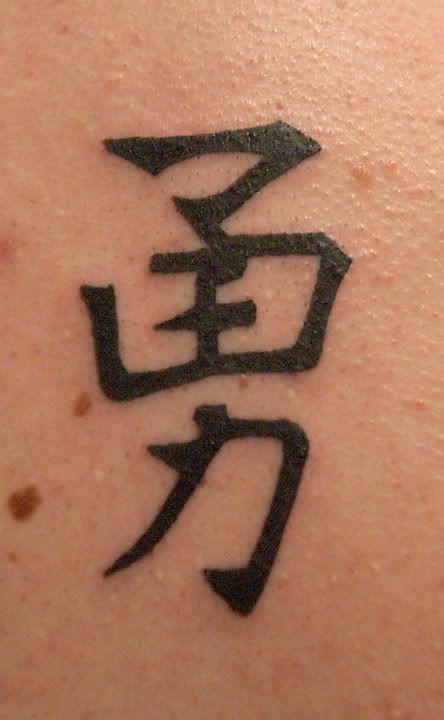The art of tattooing is one of the earliest art forms known to mankind. Tattooing has been a form of personal expression and body ornamentation since prehistoric times. Both tribal cultures and highly developed civilizations like ancient Rome and Egypt used tattooing as an art form. In every century and in countries all over the world, people have felt a strong desire to adorn their bodies with meaningful symbols and beautiful designs.
Today's tattooists must learn how to use equipment, including tattoo machines, needles and ink. They also must become familiar with modern sanitary procedures for tattooing.
Mastering this knowledge will make someone a proficient tattooist, but becoming a tattoo artist requires another level of skill. A successful tattoo artist must have a good understanding of basic artistic concepts like proportion, perspective and the use of color. The ability to draw well is another important skill for a tattoo artist. Much of this comes naturally to people who are born with artistic talent, but that doesn't mean that a dedicated tattooist can't learn and develop artistic skills. With time and practice, you can master the art of tattooing
Color Theory for the Art of Tattooing
The color of a tattoo is one of the first things that gets noticed. The use of color can make all the difference in the success or failure of a tattoo design. Gaining an understanding of how colors work together is an important step in mastering the art of tattooing. If you've never been exposed to color theory, enrolling in an art class at a community college is a great way to get started. You'll learn how the primary colors (red, yellow and blue) can be mixed to form all other colors, and how a color wheel shows which colors work well together.
Use of Contrast in Tattoos
One of the most important aspects of color in the art of tattooing is the use of contrast. Color contrast is what gives a tattoo design depth. The contrast can be in the amount of lightness and darkness (such as the contrast between white and black) or it can be in the colors themselves (such as the contrast between warm colors like yellow and orange and cool colors like blue and green). Contrast in colors will make one shape stand out from another or make a shape stand out from its background.
Composition and the Art of Tattooing
Composition refers to the flow of the design elements in a tattoo and how well they fit on the body part where they're tattooed. A client may come to a tattoo artist with a fixed idea about the design and placement of a tattoo. A good tattoo artist will know if the proportion of the design will work in the desired location. If it won't work, the tattoo artist must be ready to offer some alternative ideas. This may mean changing the scale of a design with a photocopier machine or cutting and pasting elements of one or more designs to create something new. A talented tattoo artist understands that the most successful tattoo designs mimic the flow of the body part where they're applied.
Perspective and Depth in Tattoos
Applying the artistic theories of perspective and depth is what gives a tattoo a 3-dimensional quality. In tattooing, perspective and depth are achieved through the use of contrast, outline and shading. Being able to create the illusion of reality with depth and perspective is what sets a tattoo artist apart from a tattooist. These techniques can be learned in an art course or from an art book and practiced with pencil and paper. Unless you're a natural born artist, practice and experience are the only way to master these techniques.
Besides taking art courses and practicing, a beginner tattooist should spend time studying tattoo magazines and becoming familiar with the work of established tattoo artists. Tattoo magazines are an important resource for beginning tattooists. They showcase the finest designs that the world of tattooing has to offer. By reading tattoo magazines, aspiring tattoo artists can learn about the leading tattoo artists, become inspired, decide who they want to emulate and begin to create their own style.









No comments:
Post a Comment